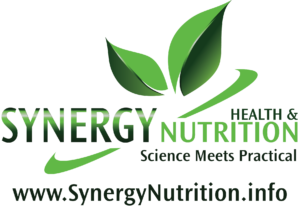The story is very clear: Food additives make children hyperactive. A definitive study published in The Lancet clearly shows that food colors and preservatives (sodium benzoate) make normal children hyperactive—half of whom were age 3 and the other half ages 8/9. In my practice, I’ve seen this in many, many adults.
Our nation’s love of easy, cheap and fast is unique. It isn’t done this way in most other places.
In fact 80% of pre-packaged foods sold in the United States are actually banned in other nations.
And for good reason. Whether it’s toxic soda brands like Mountain Dew, or sugary artificial cereals and carcinogenic franken‘potato’ chips, around 80% of the processed food “guerilla-marketed” and happily sold to children in the US contains ingredients banned in countries like Canada, the United Kingdom, the entire European Union. Our US FDA, however, does not even require proper labeling of many food-borne, disease-linked, intentionally-added artificial chemicals.
“Attention deficit hyperactivity disorder is a completely made-up ailment.”
–ADHD’s creator, psychiatrist Leon Eisenberg MD
We are trying to medicate a toxic exposure problem.
The American Psychiatric Association still insists that 3%-7% of school-aged children have ADHD; and a whopping one in thirteen youths are currently on psychiatric medications while an alarming 50-55 percent of our youths will have them prescribed at some time during their childhood.
If you’ve made your way here, you are probably among those who have already redefined your relationship with processed foods. Thank you for being part of the solution. Perhaps what follows will be useful, strengthen your resolve, or helpful to someone you love.
Eating habits are learned behaviors; they’re not intuitive. What your children learn to eat at home, early in life, sticks with them well into adulthood. Even if you’ve made change, what YOU learned to eat in your home may feel like something you “have to give up” instead of the more logical “processed foods don’t serve me and ruin my health.”
Banned ingredients in your food—get a complete food additive list (and even a Mobile App) here.
More than 3,000 food additives—preservatives, flavorings, colors and other ingredients—are added to U.S. foods. And 90 percent of the money we Americans spend on food is spent on processed foods loaded with these additives. Although most people are carrying a hefty toxic load that wreaks havoc on their health, rather than effectively prevent it, policy makers scratch their heads wondering how to address having the highest healthcare costs in the world.
“We deserve to have the quality food without potential toxins. As informed individuals, we must stop this trajectory of sickness and rising health care costs, by understanding the ingredients we are putting into our bodies.” –Marie
Most GMO foods are banned or at least require labeling in other countries (and now Vermont!) Watch this short by investigative journalist and “Food Babe” Vani Hari to see what is really going on.
Ten Common Food Additives Banned in Other Countries:
#1: Farm-Raised Salmon—banned in Australia and New Zealand
Avoid Atlantic salmon; there is no real remaining wild Atlantic Salmon; commercial “Atlantic Salmon” currently comes from fish farms and are raised on a wholly unnatural diet of grains (including genetically engineered varieties), a concoction of antibiotics and other drugs and chemicals. Look for “Alaskan salmon” and “sockeye salmon,” as Alaskan sockeye is not allowed to be farmed. The vast majority of all salmon sold in restaurants is farm raised. If the salmon at your meat counter is pale pink with wide fat marks, the salmon is farmed.
#2: Ractopamine-Meat—banned in 160 countries across Europe, Russia, mainland China and Republic of China (Taiwan)
What is “ractopamine”? During clinical trials for its use as an asthma medications, researchers unfortunately spotted another effect of making mice more muscular. Now approved by the US FDA, ractopamine is currently used in 45 percent of US pigs, 30 percent of ration-fed (CAFO and other) cattle, and an unknown percentage of turkeys.
Up to 20 percent of ractopamine remains in the meat you buy from the supermarket. At present, the US does not even test for the presence of this drug in meats sold. Since 1998, more than 1,700 people have been “poisoned” from eating pigs fed the drug. Undesirable behavioral side effects include restlessness, agitation, excessive oral-facial movements and aggressive behavior.
#3: Arsenic-Laced Chicken—banned across the European Union
Although having arsenic in our water supply is considered bad (it is), arsenic-based drugs are approved for use in animal feed in the US because they make animals grow quicker and make the meat appear pinker (i.e. “fresher”).
In the European Union, arsenic-based compounds have never been approved as safe for animal feed. And because poultry and other animal poop is used for fertilizer, the arsenic spreads throughout the food chain. Our friends at the Center for Food Safety have quite a lot of data in readable form here.
#4: Artificial Food Colors and Dyes—banned inNorway, Great Britain and Austria; a warning label is required throughout the European Union
“Boxed Mac & Cheese, cheddar flavored crackers, Jell-O and many kids’ cereals contain red 40, yellow 5, yellow 6 and/or blue 2, the most popularly-used dyes in the United States. Research has shown this rainbow of additives can cause behavioral problems as well as cancer, birth defects and other health problems in laboratory animals. Red 40 and yellow 6 are also suspected of causing an allergy-like hypersensitivity reaction in children.”
–The Center for Science in the Public Interest (click to see more or get the mobile app)
“And some dyes are also “contaminated with known carcinogens.” In countries where these food colors and dyes are banned, food companies like Kraft employ natural colorants instead, such as paprika extract, beetroot, and annatto.
#5: Flame Retardant Drinks?—banned in Europe and Japan
Internal combustion? Mountain Dew and most citrus-flavored sodas and sports drinks (read about other problems here) come with a dose of brominated vegetable oil (BVO)—a patented flame retardant.
BVO accumulates in human tissue and breast milk, and animal studies have found it causes reproductive and behavioral problems in large doses. Similar chemically to fluorine and chlorine, bromine depresses your central nervous system and disrupts endocrine (hormone) function. In the body, bromine competes with iodine and depresses thyroid function.
#6: Bread/Baked Goods with a Dose of Cancer? potassium bromate—banned in Canada, Japan, China and the European Union
Nearly every time you eat a hamburger or hotdog bun, store-bought bread, pastries from chain suppliers (think Starbucks) or restaurants you are consuming bromide used to bleach flours and dioxin, a bleaching byproduct.
A huge contributor to bromide overload in Western cultures, potassium bromate is intentionally added even to unbleached flours to “make the dough more elastic and better able to stand up to bread hooks.” Studies have linked potassium bromate to kidney and nervous system damage, thyroid problems, gastrointestinal discomfort, and since the 1990’s potassium bromate has been listed as a complete carcinogen.
#7: Non-Fat Olestra/Olean—banned in the United Kingdom and Canada
Now that trans-fats are “bad”, the go-to fat-free junk substitute has become Procter & Gamble’s Olestra, a.k.a. Olean. Used in fat-free snacks like chips and French fries, even Time Magazine named it one of the worst 50 inventions ever.
Adverse intestinal reactions to the fake fat include diarrhea, cramps and leaky bowels. And although we are taught that eating fat makes us fat (a lie often leading to the worse conclusion that I can eat fake fat to lose weight) Purdue University researchers Susan E. Swithers and Terry L. Davidson showed that rats fed potato chips made with Olean gained weight. The FDA handled the fact that Olean or olestra interferes with the absorption of fat soluble vitamins such as A, D, E and K, by requiring manufacturers to fortify with synthetic forms of these vitamins.
#8: Preserve Yourself with BHA and BHT—banned in parts of the European Union and Japan, and banned from infant foods in the United Kingdom
BHA (butylated hydroxyanisole) and BHT (butylated hydroxytoluene) has been a known human health hazard for decades, especially after some unwise vitamin companies promoted unfounded claims regarding herpes and cancer cures. Commonly use to create shelf-stabilty in everything from breakfast cereals, nut mixes, chewing gum, meat, even beer… BHA is known to cause cancer in rats, is a suspected human carcinogen and often triggers allergic reactions and hyperactivity. BHT can cause organ system toxicity.
#9: Grow Bigger with rBGH-Laced Milk and Dairy Products—banned in Australia, New Zealand, Israel, European Union and Canada and at least 30 other nations
Monsanto’s recombinant bovine growth hormone (rBGH –marketed as “Posilac”) is the largest selling dairy animal drug in America. rBGH is a synthetic version of a natural hormone produced in cows’ pituitary glands.
rBGH is injected into dairy cows to increase milk production, but it is banned in at least 30 other nations because of its dangers to human health, including an increased risk for colorectal, prostate, and breast cancer. Not particularly animal-friendly either, rBGH-injected cows suffer at least 16 different adverse health conditions, including very high rates of mastitis that contaminate milk with pus and antibiotics.
“The increased use of antibiotics to treat this type of rBGH-induced inflammation ‘does promote the development of antibiotic-resistant bacteria, but the extent to which these are transmitted to humans is unclear.”
—American Cancer Society
Although the US FDA stubbornly sticks to its position that milk from rBGH-treated cows is no different than milk from untreated cows, this is just plain false and is not supported by science. The only way to avoid rBGH is to look for products labeled as “rBGH-free” or “No rBGH. There is overwhelming opposition by the powerful dairy and pharmaceutical industries (Monsanto), and their government liaisons.
#10: Genetically Engineered Papaya—banned in the European Union
Before writing this, I didn’t realize that most Hawaiian papaya is now genetically engineered (for ringspot virus resistance). Mounting animal research shows that animals fed genetically engineered foods, such as corn and soy, suffer a wide range of maladies, including intestinal damage, multiple-organ damage, massive tumors, birth defects, premature death, and near complete sterility by the third generation of offspring.
The Obama administration has placed former Monsanto attorney and Vice President, Michael Taylor, in charge of US food safety, and Supreme Court Justice Clarence Thomas is a former Monsanto attorney. I will vote with my spending dollars from now on and opt out of this great human experiment.
Please, before you medicate, please consider that the source of the problem may just be a known irritant coming in through the food we eat every day. If I can support you in any way, please contact me at marie@successhealthcoach.com; or consider doing my next group cleanse.
[contact-form-7 id=”1851″ title=”Question form blog page”]






